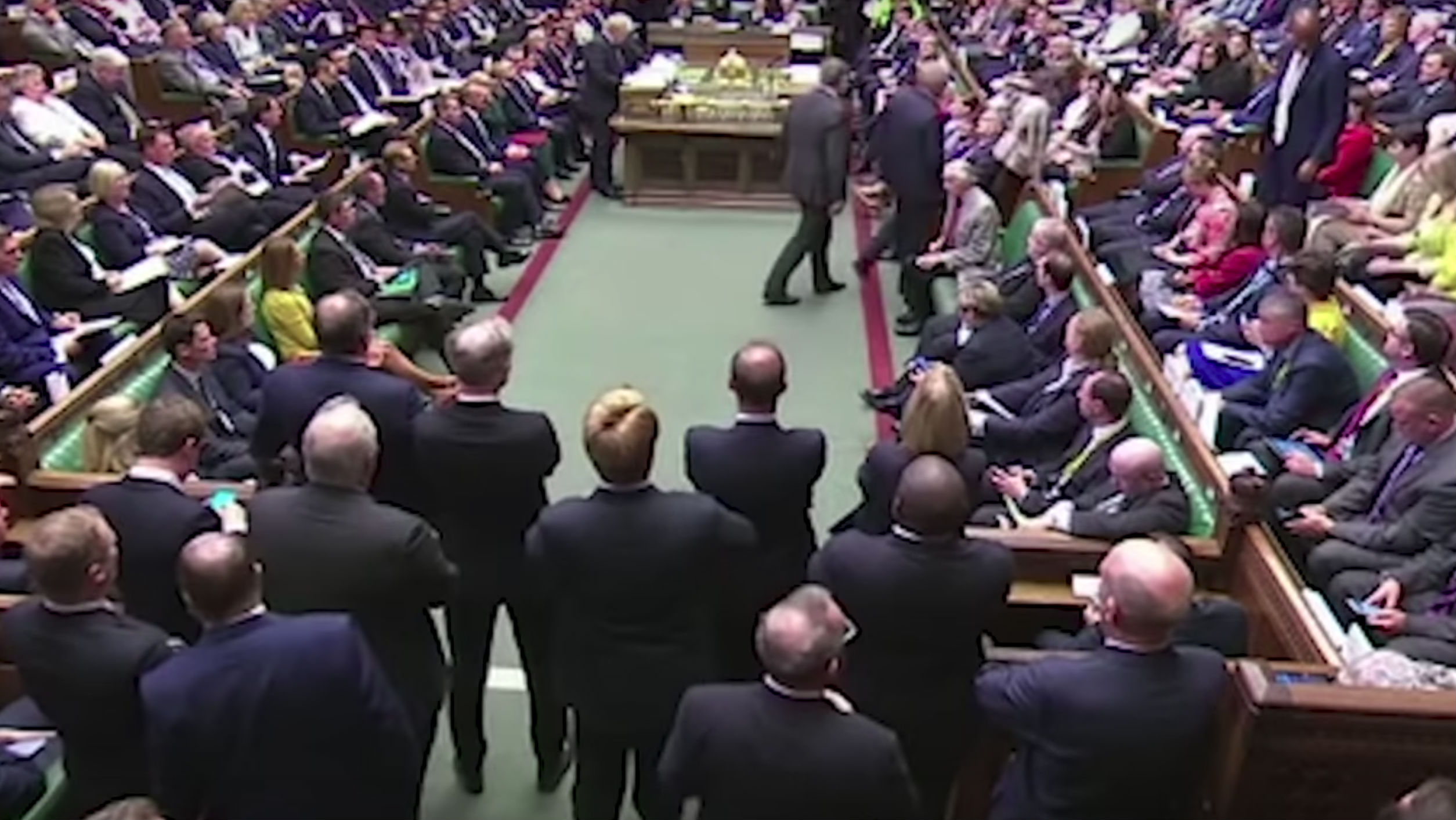What happens when a government loses its Commons majority?
Tory MP Phillip Lee defects to Lib Dems as Boris Johnson addresses Parliament

A free daily email with the biggest news stories of the day – and the best features from TheWeek.com
You are now subscribed
Your newsletter sign-up was successful
Boris Johnson has lost his Commons majority after Tory MP Phillip Lee defected to the Liberal Democrats last night.
The MP for Bracknell walked across the chamber to sit with his new Lib Dem colleagues as Johnson was speaking to Parliament. Lee later accused the Government of “aggressively pursuing a damaging Brexit in unprincipled ways”.
Meanwhile, Downing Street has said it will be removing the Tory whip from 21 MPs who voted against the Government over plans to effectively block a no-deal Brexit on 31 October. The rebels include “former chancellors, secretaries of state and the grandson of Winston Churchill, Sir Nicholas Soames”, notes iNews.
The Week
Escape your echo chamber. Get the facts behind the news, plus analysis from multiple perspectives.

Sign up for The Week's Free Newsletters
From our morning news briefing to a weekly Good News Newsletter, get the best of The Week delivered directly to your inbox.
From our morning news briefing to a weekly Good News Newsletter, get the best of The Week delivered directly to your inbox.
Unless the whip is restored, these MPs will sit as independents in the Commons.
So what does that mean for the ruling party?
Lee’s departure could prove especially significant if MPs try to bring down Johnson’s government, says Sebastian Payne in the Financial Times.
“If such a vote is held before Parliament is prorogued next week, Mr Johnson would be theoretically susceptible to losing,” Payne explains.
A free daily email with the biggest news stories of the day – and the best features from TheWeek.com
“If you band together the Labour party’s 247 MPs, plus 35 Scottish nationalists, 15 Liberal Democrats, 20 independents, 4 Welsh nationalists and one Green MP, then there is a fine majority of one which could bring down his government.”
But Payne notes that not all independents want Johnson out of office. “Lee’s departure is important, and an embarrassing moment for Mr Johnson. But until a confidence vote is brought forward, it is hard to say just how significant it is,” he says.
Meanwhile, ConservativeHome editor Paul Goodman says the expulsion of the 21 rebels “suggests a general election sooner rather than later, and one which may well take place without Brexit having been delivered”.
However, The Telegraph’s Janet Daley warns that the UK risks “more or less permanent paralysis” if a general election is not backed by MPs.
“We now face, in theory, an indefinite future of paralysis in which we could be prevented from having a functioning government and also from holding an election to replace that government,” she writes.
Daley argues that Johnson must do whatever it takes to bring about an election “however irregular or constitutionally controversial”, claiming “the future of our politics depends on it”.
ITV’s Robert Peston claims that “Jeremy Corbyn is now in charge - even though he isn’t prime minister”, as the Labour leader now has the power to decide whether there is a general election.
“Here is the measure of the madness. Johnson doesn’t have the numbers to do anything, yet it may not be in Corbyn’s and Labour’s interest to put him and us out of our misery,” Peston says.
“This is not a constitution crisis. It is a constitutional failure.”